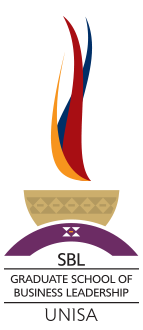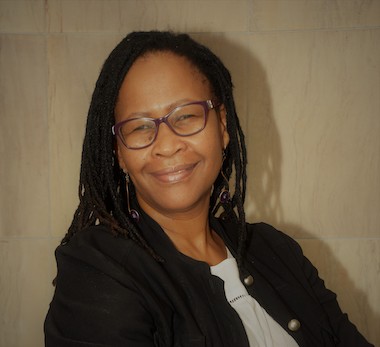

Prof Pumela Msweli, PhD, Acting Executive Dean and CEO, Graduate School of Business Leadership, University of South Africa
The Covid-19 Pandemic has set business schools and the academia as a whole, into a massive transformation path. Transformation in business schools is not a new thing. In the last thirty years, the business education sector in South Africa has had to transform in line with post-apartheid policies, while simultaneously contending with globalisation, commodification, massification and decolonisation processes. On top of all of that, business schools have had to fight for their legitimacy in a very competitive market place. So what is different about Covid-19 this time? The pandemic is unique in its transformative effects, because of its international character, its dominance in the media space, and most importantly how it brought immediacy in the ways of being, of living and of working. This happened globally, simultaneous, with immediate effect. Perhaps, the most profound learning from Covid-19 is the poignant illustration of how the human family is inter-connected.
These new Covid-19 circumstances have created a business environment that requires supersize agility and ambidexterity. What exactly does this mean? Metaphorically speaking this means that if business schools were built on solid ground with bricks and mortar, Covid-19 requires a new kind of skill-set and capabilities to build a light but resilient and agile ‘sailboat’ that moves nimbly in stormy Covid-19 waters. Heaviness in structure, including cumbersome processes and protracted decision making process that are unperceptive to the changing business landscape will sink the boat. Efficiency in decision making and a culture of excellence will set apart business schools that flourish to those that become financially unsustainable.
Structure and decision making processes are obvious places to build agility in an organisation. Fear of change amounts to perilous heavy weight that is more difficult to recognise and tackle because of its inconspicuousness. Fear of change is hidden in layers of other traits, such as fear of failure, fear of losing legitimacy from stakeholders whose validation may cost income. Organisations are stuck because of this nebulous and yet potent fear of change, fear of losing income, fear of losing rating, fear of losing something that was probably never there in the first place, except fear itself. Fear of change breeds a timid leadership style that makes the organisation sluggish. Fear is not necessarily a bad thing. It can be a good thing, only if it is transmuted into loftier strategic business goals and a positive course of action.
In these times of Covid-19, it is therefore not enough to have an agile structure, with relevant skill-sets and capabilities. Responsive, socially conscious leadership built on strong values of trust, and ubuntu, are indispensable in building agile ambidextrous, vibrant and financially viable institutions. This requires high levels of intuition quotient, deep and creative thinking, futuristic and pragmatic ways of planning, and trust in the capabilities of those that exist in our organisations. It is high time that as African leaders we tap into our own inner powers beyond the five sensory modalities. These are intuitive powers that do not need regression modelling, artificial intelligence nor big data software. This is not to downplay the critical role of digital technologies at all. This is to accentuate the fact that all human beings are created with built in intuitive technological powers and other capabilities; and that we can all tap into these infinite resources within us, that are waiting to be awakened within our consciousness.
Back to the issue of trust, I am of the view that the best way to build trust in an organisation is to give trust to employees in the organisation, of course with necessary safe-guards and controls. That however, is the easiest part. What separates leaders from followers is the action of being trustworthy. The difficult part is to speak hard truth (to self, first) and one truth to the multiple stakeholders in an organisation. No policy, and no amount of money or power can make a leader to be trustworthy, or to be trusted. It is a personal journey that requires leaders to be true to thine own selves; to be aligned with thine own higher selves; and to act and speak thine truth in all thine actions, visible and invisible to the human eye. In closing I would like to share with you a poem I wrote when I was pondering on leadership values and challenges facing our institutions in South Africa today:
truth is the roots and trust is the tree
when trust is not grounded in truth
it becomes a tree without roots;
it becomes a promise that is never kept;
words that are never honoured;
a strategic plan
that is never followed;
many spoken words
that are meaningless;
a beautiful façade
hiding insensitivity to Ubuntu;
when trust is not grounded in truth
it becomes an illusion
that is made to be bigger and more important
than reality itself;
it sounds like sincerity,
though just layers of self-glory;
the tree of trust is attractive
to all and sundry,
for it has fruit
to sustain our momentary stay
in this beautiful place
our bountiful mama Africa
a healthy tree of trust
has resilient roots,
that are infused
with vital life force
from mother earth
and her surrounding
cosmic energy
truth like the roots
symbolise selfless and invisible work,
in silence and solitude,
underground,
with focused energy, that
creates a tree that bears the trust,
the fruit
we so need
for our sustenance
Pumela Msweli, July 2020
Publish date: 2020-07-13 00:00:00.0
Contact the Marketing and Communication office: Ms Thami Kaunda at kaundn@unisa.ac.za
011 652 0339
Telephone: +27 11 652 0248 / +27 11 652 0291
Email: sbl@unisa.ac.za
Physical Address:
Cnr Janadel and Alexandra Avenues
Midrand, 1686
Gauteng, South Africa
Download map & directions (PDF)